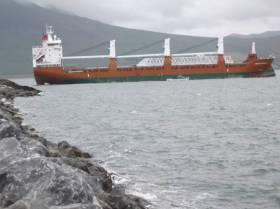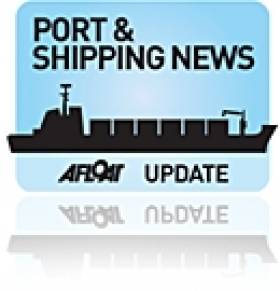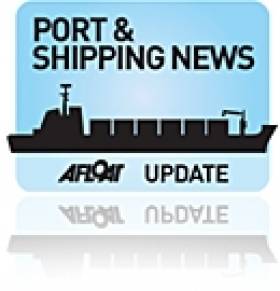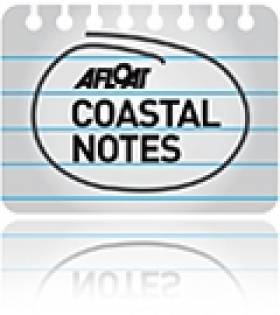Displaying items by tag: Fenit Harbour company
Study to Explore Possible Expansion of Fenit Harbour
#FenitExpansion? - A feasibility study to explore the possible expansion of Fenit Harbour is to carried out next year according to Radio Kerry.
Kerry County Council will spend almost €1 million in 2017 on the operation and promotion of the harbour. This includes staff costs and maintenance of the pier, marina and lighthouse.
The council says the development of an assembly hall and office by Liebherr Container Cranes consolidates the company’s position in Fenit Harbour.
An example of the crane export trade Afloat.ie reported in 2012 of what was then believed to be the largest ever ship to dock at the port the heavylift ship HHL Valparasio (2010/17,634grt).
The Liberian flagged vessel called to the south-west port to load a pair of ship-to-shore container cranes bound for the US.
Cargoship to Dock in Fenit to Load Liebherr Cranes
#ShippingCRANES- Since Friday, the Stade, a 7,850 tonnes multi-lift cargo vessel has been at anchorage off Fenit Harbour, Co. Kerry, awaiting to berth, so to load container components from the Liebherr plant in Fossa, Killarney, writes Jehan Ashmore.
Due to weather conditions, the 146m long vessel which had sailed from Zeebrugge, is not expected to moor alongside Fenit Pier until tomorrow morning, weather permitting.
As previously reported on Afloat.ie, the international crane manufacturer's Irish based plant, has an order from the New Zealand south island port of Lyttelton, for four straddle-container carriers, due for delivery in mid-2013.
The export of container cranes are the port's only major commercial customer. Last August the port handled its largest ever vessel, the heavylift ship HHL Valparasio (2010/17,634grt) which departed with two ship-to-shore container cranes bound for the USA.
Biggest Vessel to Dock in Fenit Loads Cranes for USA
#SHIPPING CRANES – In what is believed to be the largest ship ever to dock in Fenit, Co. Kerry, the heavylift ship HHL Valparasio (2010/17,634grt) departed this afternoon with two ship-to-shore container cranes bound for the USA, writes Jehan Ashmore.
The Liberian flagged heavylift ship is transporting the cranes to Elizabeth Port, in New Jersey and were manufactured by Liebherr Container Cranes Ltd based in Fossa, outside Killarney.
The Swiss family owned business has been operating with its Irish base since 1958 and has a workforce of 560 employees. The manufacturing facility is part of a global group with more than 35,000 employees in more than 130 companies, in which the company was established in 1949 by founder Hans Liebherr.
As HHL Valparaso departed Fenit pier, two tugs assisted the 168m long vessel which had previously made her outward bound trans-Atlantic voyage from Norfolk, Virginia. On board was cargo of grain which was unloaded in Dublin Port earlier this month.
The two-year old vessel (P2 class) is owned by German operator Hansa Heavy Lift GmBH based in Hamburg and she was built by the Hudong Zhonghua Shipbuilding Group in Shanghai, China. The vessel belongs to a fleet of 21 multipurpose heavy-lift freighters engaged in the heavy-lift and project market.
The ships' on board cranes have harnesses of a combined lift capacity of 1,400 tons and facilitate the loading and discharging of cargoes around the world – independent of the local infrastructure.
With today's crane cargo which forms the only major business running out of Fenit, which has operated as a commercial port since 1887, the Co. Kerry harbour has had 12 such shipments in 2012. According to Liebherr a further seven such exporting cargo-calls are scheduled for the rest of this year.
New Website to Promote 'Tralee's Hidden Gem'
Fenit Harbour Company has launched a new website to promote its harbour and marina facilities, one of the most westerly marinas in Europe. Using the slogan, 'Tralee's Hidden Gem', Chairman of the Harbour commissioners, Brian O'Sullivan outlined plans for the harbour and its 'untapped potential' at an official launch at nearby Tralee Bay Sailing Club last Friday. The new website is HERE.

































































